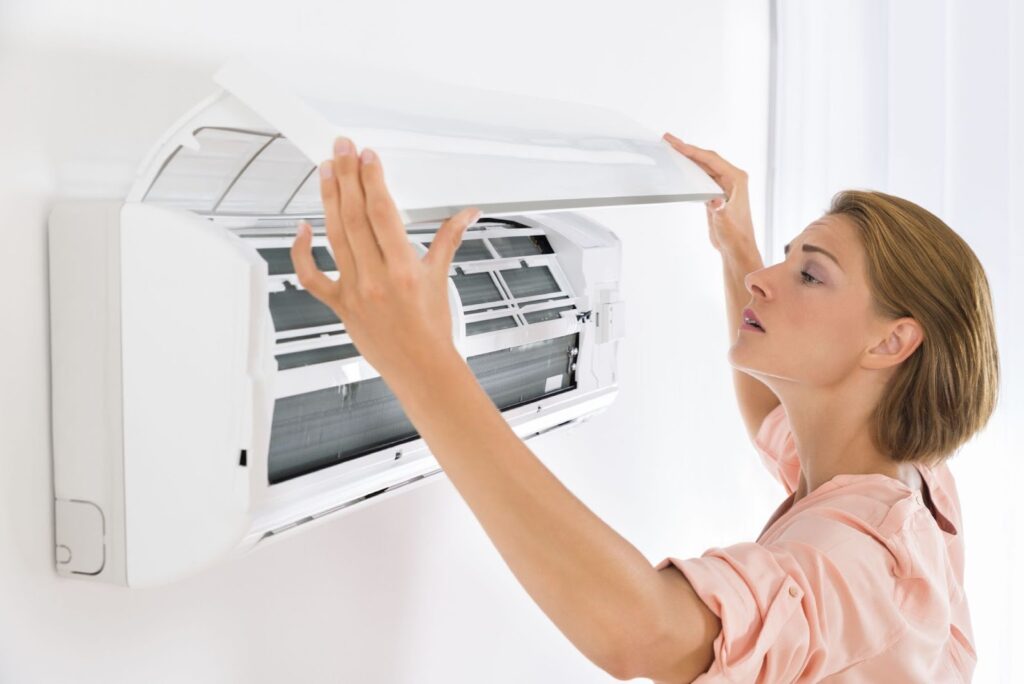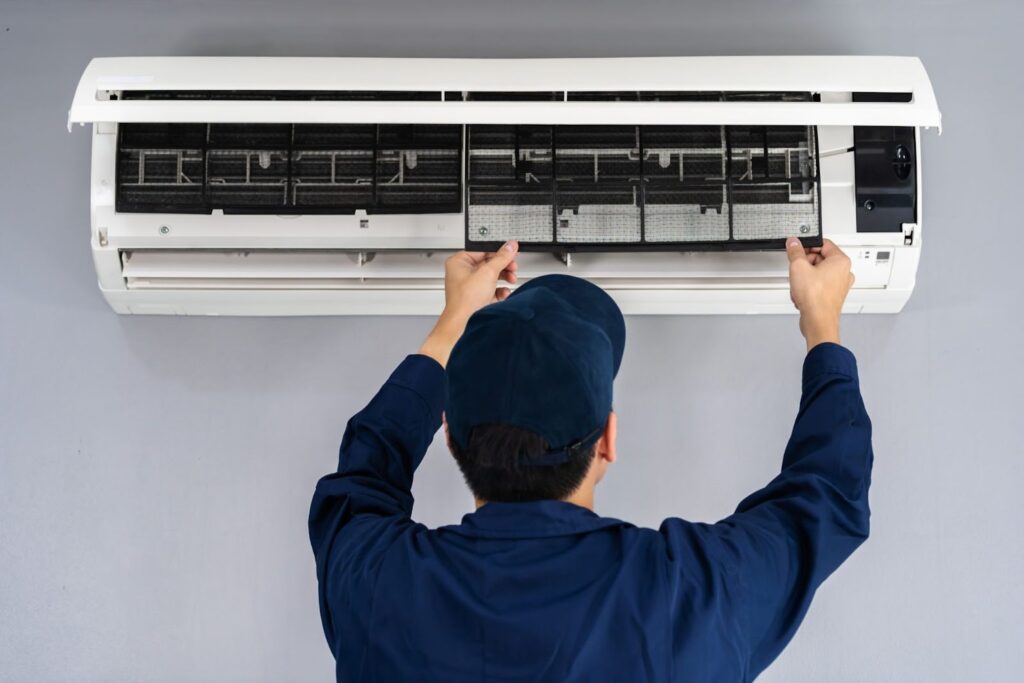Your air conditioning system is essential for maintaining a comfortable home environment, yet many problems can develop without obvious signs. Small issues often go unnoticed until they become major, expensive repairs. Learning to spot early warning signs of AC problems can save you significant time, money, and discomfort.
By understanding common AC issues and their symptoms, you can protect your system from unnecessary damage and avoid emergency breakdowns. Staying informed about these warning signs helps you maintain a reliable and efficient cooling system.

Why Early Detection of AC Problems is Important?
Air conditioning problems typically start small, perhaps with a strange noise, slight temperature variation, or minor performance issues. However, if ignored, these minor concerns can escalate into system failures, expensive repairs, or complete replacement needs. That’s why recognizing early warning signs is essential.
While some of the AC components are visible, many important parts operate behind walls or outside your home. However, with proper knowledge, you can identify potential issues before they become serious. If you’re not sure how to identify these common issues, contacting a professional air conditioning service in New Jersey is a great option to diagnose and resolve these problems effectively. By paying attention to symptoms like insufficient cooling, strange noises, high energy bills, and leaks, you can take action before a minor issue turns into a major problem.
What Are the Common Air Conditioning Problems to Check Out?
Detecting air conditioner issues early can prevent costly repairs and ensure efficient operation. Look out for these warning signs to avoid major breakdowns. Here are some common indicators that your AC might need attention:
1. Warm Air Coming from Vents
If your air conditioning system blows warm air, it indicates a problem. Possible causes include:
- Malfunctioning thermostat
- Restricted airflow
- Refrigerant leak
Check thermostat settings first. If the issue persists, compressor or refrigerant levels may be faulty, requiring professional attention. Ignoring this problem can lead to increased energy bills and unit damage. Addressing it promptly ensures efficient operation and prevents costly repairs.
2. Insufficient Airflow
Weak or insufficient airflow indicates your air conditioner isn’t working efficiently. This issue is often caused by a clogged air filter, or more serious problems like a broken motor or malfunctioning fan.
To improve airflow, replace your air filter and consider regular changes. If issues persist, inspect the ductwork for blockages or leaks to ensure optimal performance and prevent costly repairs.
3. Frequent Cycling
Your air conditioner should follow a regular cooling cycle, regardless of the weather outside. If your AC unit is frequently turning on and off, this is known as “short cycling.” Short cycling can occur for several reasons, including a clogged air filter, an oversized system, or issues with the thermostat.
Frequent cycling can put a strain on your system and cause it to wear out faster. If you notice this issue, it’s best to contact an HVAC professional to diagnose the problem.
4. Strange Noises
Air conditioning units should operate relatively quietly. Unusual noises like grinding, squealing, or banging indicate mechanical problems, such as loose parts or a worn-out belt.
Grinding noises may signify failing motor bearings, while squealing sounds can indicate blower motor or fan belt issues. If left unattended, these problems can lead to complete system failure, making immediate attention necessary.
5. Water Leaks Around the Unit
Your air conditioner uses refrigerant to cool your home, and as part of that process, it can produce condensation. However, if you notice water pooling around the unit or excessive moisture, this could indicate a more serious issue.
Common causes include a clogged condensate drain line, broken condensate pump, or evaporator coil issue. Water damage can harm walls, floors, and furniture, and signal system failure risk. If you notice leaks, have your AC unit inspected immediately to prevent costly damage.
6. Unpleasant Odors
Foul or musty odors from air conditioning vents indicate a problem. Bacteria or mold growth in ductwork or on the evaporator coil are common causes.
To eliminate odors, you may need to have your ductwork cleaned or replace the air filter. If you notice a burning smell, turn off the system and contact a professional immediately, as this could be a sign of an electrical hazard.
7. High Humidity Levels
In addition to cooling your home, your air conditioner should also help control humidity levels. If your AC is not effectively removing humidity from the air, you may notice a damp or sticky feeling in your home. This issue could be caused by a malfunctioning system or a problem with the refrigerant levels.
To solve this issue, consider scheduling routine maintenance to ensure your system is properly balanced and functioning as it should. Maintaining the correct humidity levels is important for both comfort and indoor air quality.
8. Refrigerant Leaks
Refrigerant is essential for your air conditioner to cool your home, and a leak can significantly impact the system’s performance. Signs of a refrigerant leak include poor cooling performance, hissing sounds coming from the unit, and frozen coils.
If you suspect a refrigerant leak, it’s important to contact a professional for air conditioning service immediately. A refrigerant leak not only affects the efficiency of your system but can also be harmful to the environment.

How Regular Maintenance Can Prevent These Issues?
The best way to avoid air conditioning problems is to invest in regular maintenance. Scheduling an annual HVAC tune-up allows a professional to inspect your system, clean the components, and identify any potential problems before they become major issues. Regular maintenance can extend the life of your unit, improve efficiency, and save you money in the long run.
Routine tasks like replacing the air filter every 1-3 months, cleaning the condenser coils, and checking refrigerant levels are essential for keeping your system running smoothly.
Similarly, if your HVAC system uses compressed air for operation, air compressor maintenance is just as important to ensure optimal performance and longevity.
Conclusion
Identifying AC problems early is important for maintaining your system’s efficiency and preventing costly repairs. By staying alert to these warning signs and addressing issues promptly, you can avoid major breakdowns and ensure reliable cooling performance.
Remember, while some maintenance tasks can be handled yourself, professional expertise is often necessary for proper diagnosis and repair. Don’t hesitate to contact qualified AC technicians when you notice concerning symptoms.
- 0shares
- Facebook0
- Pinterest0
- Twitter0
- Reddit0



